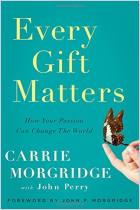Melden Sie sich bei getAbstract an, um die Zusammenfassung zu erhalten.

Melden Sie sich bei getAbstract an, um die Zusammenfassung zu erhalten.
Stephen J. Dubner and Angela Duckworth
Is It Worth It for Charities to Harass Their Donors?
No Stupid Questions Podcast
Freakonomics Radio, 2022
Was ist drin?
When’s the last time your favorite charity reached out to you – and if they reach out often, are they still your favorite?
Recommendation
When’s the last time you got a request for money in the mail? If you’re like many Americans, chances are you’ve had several in the past week. These mailers are bad for the environment, and probably not great for your mental health, but are they good for the charities that mail them? In this episode of No Stupid Questions, Angela Duckworth and Stephen Dubner answer a listener who asks, “Why are charities spending money to annoy their donors?” Dubner and Duckworth explore whether repeated mailings and free gifts from charities inspire donors to give more.
Summary
About the Podcast
Stephen J. Dubner is a journalist, podcast and radio host, and the co-author of the Freakonomics book series. Angela Duckworth is the Rosa Lee and Egbert Chang Professor of Psychology at the University of Pennsylvania, the author of Grit: The Power of Passion and Perseverance, and the co-host of No Stupid Questions, a podcast on the Freakonomics Radio network.































Comment on this summary